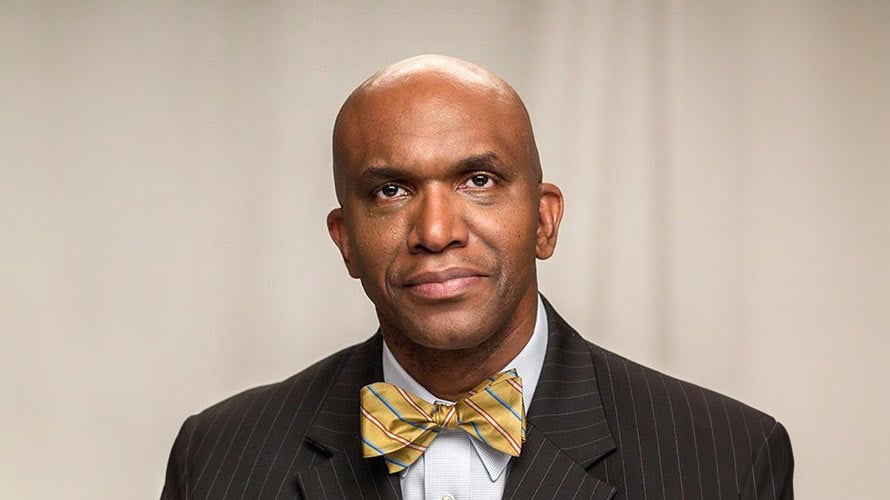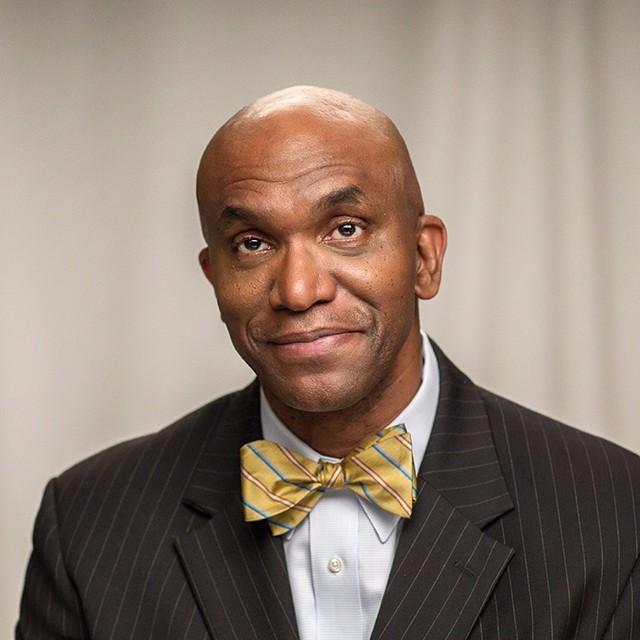Dr. Green's Story

Meet Lee Green, PhD
Moffitt Researcher, Health Outcomes and Behavior Program
"As you look across the institution, from our CEO to people who are here helping maintain the place, everybody has that sense of being here for the same purpose."
Dr. Lee Green’s interest in public health began at a young age. As a teenager, he helped care for his grandmother as her health declined – and eventually had both legs amputated – because of severe diabetes.
“I determined that she just didn't have the knowledge or the information about exercise, healthy eating, all of those things that make up good health behaviors,” he reflects.
That realization stayed with him when it came time to pursue a career. “I wanted to help individuals in all different kinds of communities try to make better health decisions so they would not experience what my grandmother did.”
Fast-forward a number of years, and Dr. Green was invited to Moffitt for a consult on diversity and disparity initiatives. While that trip only lasted a few days, he’d quickly picked up on something special about Moffitt and its people.
“The whole feel of Moffitt was just totally different from the other institutions I’ve been a part of,” he recalls. “The people were very collaborative. They all believed in the same goal and mission and vision.” So, when he received a call a few days later with an invitation to join the Moffitt team, he was quick to accept.
Today, Dr. Green is a senior member of the Health Outcomes and Behavior faculty. “I investigate why differences exist between populations when it comes to cancer and try to figure out how we can close the gap,” he explains.
“We are a very community-oriented cancer center,” Dr. Green states. And that dedication to community and diversity is unique. “Diversity is not an easy topic to talk about. It can become very emotional. But the way we do it shows courage.” That perspective is key, he insists. “We don't see diversity as checking off a box with the data on how many minorities and women we have. I would not be in this position if that were the philosophy of this institution. I’m proud to be a part of an organization that knows diversity makes us stronger, and wants to do whatever we can to make sure that we have a diverse group of individuals who will bring a different set of experiences and a different thought process to the table, so that we're all not thinking and acting the same way.”
It’s his belief that for an institution to put the proper resources into diversity, it takes an incredible amount of courage.
To fill a role as complex as Dr. Green’s, one has to have a special kind of passion for the workplace. For him, the people he works with and their collective mission fuel that passion.
“As you look across the institution, from our CEO to people who are here helping maintain the place, everybody has that sense of being here for the same purpose,” he notes. “I may not be doing surgery. I may not be curing patients. But I'm a part of that overall vision and mission for the institution. And that's special. Getting up every morning, I can't wait to get to Moffitt, and there aren’t a lot of people who can say that about their job.”
Outside of his coworkers, Dr. Green finds fulfillment in interactions with the community members he serves. He shares one particular story of a man who attended Moffitt’s annual Men’s Health Forum. It’s an event where men from the community who may not have access to resources or healthcare can receive breakfast, lunch and a full health screening – including free screenings for diabetes, vision and HIV. Prostate cancer screenings are available at Moffitt only after men have been properly educated about the risks and benefits of screening.
“A few years ago, at the end of the event, a man comes up to me with an envelope and in the envelope is a 10 dollar bill. He hands it to me and says, ‘Dr. Green, I know we don't have to pay anything for this, but Moffitt does so much for us in the community. I don’t have much to give, but I just wanted to give something back.’”
Dr. Green was speechless.
“This gentleman was most likely homeless. But he gave me what could have been his last 10 bucks, because he wanted to contribute something to the cause. Of course, I tried to give it back, but he said, ‘No, you will make me feel good if you take this ten dollars.’”
Today, that 10 dollars hangs in Dr. Green’s office with a note from the man, as a simple reminder that Moffitt’s courage can make a difference.

